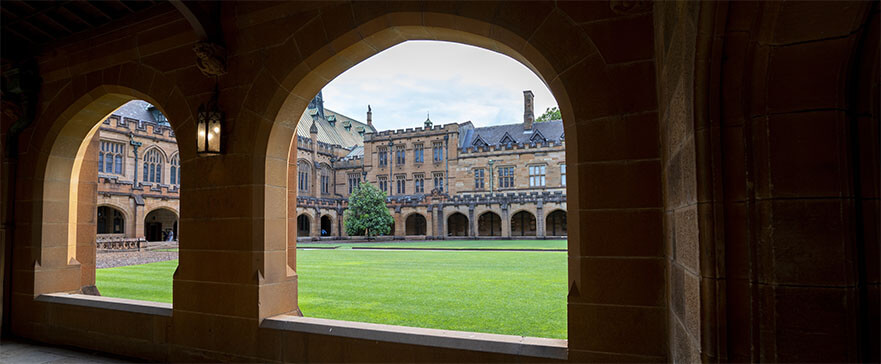You might think the Holocaust would have buried anti-Semitism once and for all, but sadly, that’s not the case. Anti-Semitism is on the rise across the world.
Let’s focus on my country, Australia, which has several large Jewish communities in Sydney and Melbourne, and to a lesser extent in Perth. Adelaide and Brisbane have smaller communities, with Hobart and Darwin having the least numerically. Yet regardless of size, their meeting places are fenced, fitted with security cameras, and sometimes have armed guards. There is grave concern for the safety of synagogue attendees, children at Jewish schools, and members of their community centers.
So, how far does anti-Semitism reach? Does it target only schools, places of worship, and social centers? Or does it extend further?
It is apparent that episodes of anti-Semitism occur and have risen in schools, both primary and secondary, but is this also true of higher education? The tragic answer is: yes.
A report on anti-Semitism released in November 2011 by Monash University Australian Centre for Jewish Civilisation documented both overt and covert episodes of anti-Semitism on university campuses. More recently, the 2019 report on anti-Semitism in Australia documented more episodes of anti-Semitism in universities.
Fair Criticism or Anti-Semitism?
Anti-Semitism in universities is primarily connected with criticism of Israel and peaks whenever conflict between Israel and Arab nations occurs. Lecturers in subject areas completely unrelated to politics or international affairs use their teaching platform to express strong denouncements of Israel for its treatment of Palestinians. Jewish students attending such lectures feel uncomfortable and targeted, even though not personally addressed. Campus protests by university students against Israel’s treatment of Palestinians are common and rarely consider the full picture, which disturbs many Jewish students.
The obvious disconnect between subject matter and criticism in the case of lecturers and the sole targeting of Israel’s actions, disregarding the context, as compared with other nations, indicates more is at stake than political commentary.
Some would challenge the interpretation of these episodes as anti-Semitic, believing them to be valid political criticism. But the obvious disconnect between subject matter and criticism in the case of lecturers and the sole targeting of Israel’s actions, disregarding the context, as compared with other nations, indicates more is at stake than political commentary. The immediacy and intensity of criticism suggests the expression of anti-Semitic attitudes, especially when only the Jewish population of Israel is in focus. Identifying as Jewish on a university campus connects a student with Israel, even if an Australian citizen from birth, and often provokes antagonism.
The criticism of Israel and anyone who supports Israel can be intense and extremely intimidating for students in a lecture context. References to Israel as an apartheid state without a right of existence by lecturers communicate a strong anti-Zionism, which is thinly veiled anti-Semitism. Jewish students find this to be an excuse for hating Jews and are consequently offended by such comments, but they may not express their sentiments for fear of humiliation or social isolation. This is especially true in the lecture room, where Jewish students are a minority among the students and are significantly disadvantaged in relationship to the lecturer.
Stopping at the Source
Clearly, anti-Semitism is prevalent in Australian higher education, and one wonders what can be done about it. Interestingly, in late 2019, when addressing the rising tide of anti-Semitism in politics, Australian Senator Andrew Bragg called for the education sector to do its part in countering anti-Semitism. Sharyn Mittelman also focused on education as the key to tackling anti-Semitism in her article for Australia Israel & Jewish Affairs Council (AIJAC).
Ironically, the very context in which anti-Semitism occurs is the place for changing it. Misinformation and persistent erroneous historical perceptions of Jews that fuel anti-Semitism need to be corrected, which requires intentional, accurate education on Jewish history, including the Holocaust up to the present.
But it is too late to leave such education untouched until the university level. By that time, many students will have formed settled convictions and firm attitudes with respect to Israel and Jewish people from a variety of sources. Education to counter anti-Semitism must begin in primary and secondary education, which the Australian curriculum allows and has already included for high school.
The problem then remains as to how willing and able schools are to make use of the curriculum. Australia’s current emphasis on addressing discrimination provides a positive platform to highlight this need, which some are doing. More can be done and should be done to protect Jewish people from unwarranted hurtful treatment.






Comments 4
Teachers of the primary & secondary grades need to be held accountable for teaching education that counters anti-Semitism. Are there benchmarks in the curriculum that must be met?
The curriculum allows for teaching regarding anti-Semitism, but it is not compulsory as part of the core requirements, which means each school and/or teacher decides whether to include it. In this respect no benchmarks currently exist on this subject matter. This is a glaring weakness that should be addressed in the current climate especially. Holocaust museums are an excellent resource that could be accessed by schools in providing teaching on anti-Semitism. Adelaide, South Australia, is soon to open its first Holocaust Museum, Adelaid Holocaust Museum and Steiner Education Centre (AHMSEC).
I am glad to say that with all the failings of the Andrews Labor Government in the State of Victoria there is one thing here we must applaud. That is, the compulsory nature of Holocaust education in Victorian Schools as of January this year (2020). This is particularly commendable in view of the recent spate of anti-Semitic attacks in Melbourne.
My heart is so heavy for the condition of our world. We seem to not be able to love one another. We must cry out to God and ask for his help. He is the only one who can truly make things right in this world